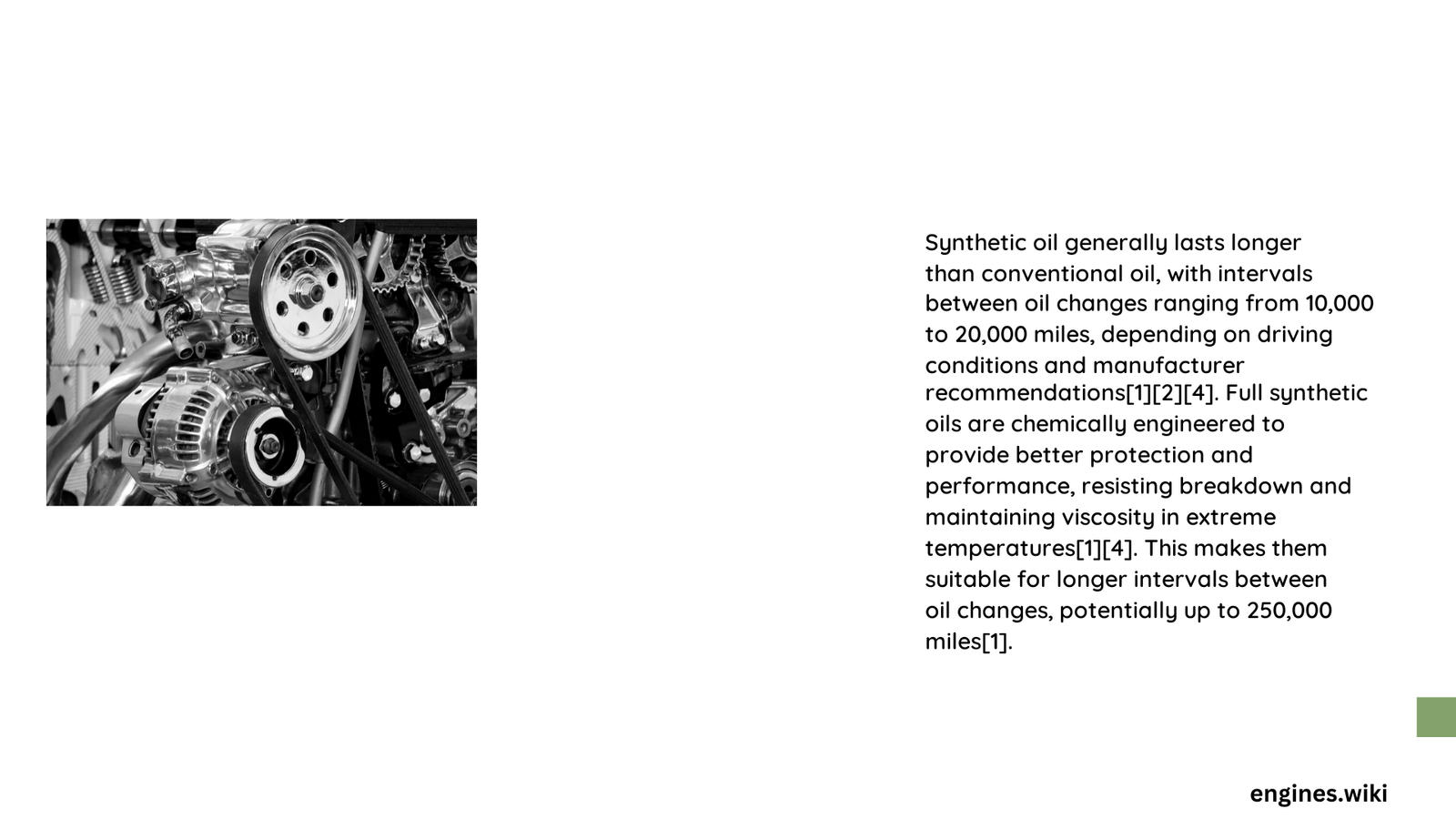Engine oils play a critical role in vehicle performance, with synthetic and conventional options presenting distinct longevity characteristics. Synthetic engine oils dramatically outperform conventional oils, offering extended protection, reduced wear, and significantly longer intervals between changes. Vehicle owners seeking maximum engine durability and performance will find comprehensive insights into which engine oil lasts longer through this comprehensive analysis.
What Makes Engine Oil Durability Different?
How Do Synthetic and Conventional Oils Compare?
Synthetic engine oils demonstrate remarkable longevity compared to conventional alternatives. Key differences include:
| Oil Type | Average Mileage Interval | Temperature Stability | Wear Protection |
|---|---|---|---|
| Synthetic | 7,500 – 15,000 miles | Excellent | High |
| Conventional | 3,000 – 5,000 miles | Limited | Moderate |
Performance Characteristics
Synthetic oils offer superior performance through:
- Advanced molecular engineering
- Enhanced chemical stability
- Better viscosity maintenance across temperature ranges
- Reduced friction and engine wear
Why Do Synthetic Oils Last Longer?
Synthetic engine oils utilize:
- Refined Base Stocks: Engineered at molecular level for consistent performance
- Advanced Additives: Prevent sludge formation and maintain oil integrity
- Superior Thermal Resistance: Withstand extreme temperatures without breaking down
What Factors Influence Oil Longevity?
Several critical factors determine engine oil performance:
- Driving conditions
- Vehicle age
- Manufacturer recommendations
- Environmental temperature
- Maintenance practices
How to Maximize Engine Oil Performance?
Recommendations for extending oil life:
- Follow manufacturer service intervals
- Use high-quality synthetic oils
- Perform regular vehicle maintenance
- Monitor oil condition through periodic checks
- Consider driving habits and environment
What Are Top Synthetic Oil Brands?
Recommended synthetic oil brands include:
- Mobil 1
- Castrol Edge
- Royal Purple
- Pennzoil Platinum
- Amsoil
What Cost Savings Can You Expect?
While synthetic oils cost more initially, they provide long-term benefits:
- Reduced oil change frequency
- Lower maintenance expenses
- Extended engine life
- Improved fuel efficiency
Technical Insights on Oil Longevity
Synthetic oils can potentially provide:
– Up to 250,000 miles of engine protection
– 3-4 times longer intervals between changes
– Minimal performance degradation
Expert Recommendations
Automotive experts consistently recommend:
– Using full synthetic oils for modern vehicles
– Checking manufacturer specifications
– Considering vehicle age and driving conditions
Potential Limitations
Considerations when choosing synthetic oils:
– Higher initial cost
– Not always suitable for older engines
– Potential over-reliance without proper maintenance
Conclusion

Synthetic engine oils definitively last longer, offering superior protection, extended change intervals, and enhanced engine performance. Vehicle owners seeking maximum longevity should prioritize high-quality synthetic formulations tailored to their specific automotive requirements.
